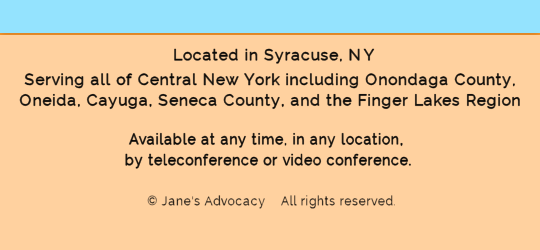Over the last many weeks, as more and more people have added themselves to the AdvoConnection Directory (a smart move as we begin to come out of pandemic isolation knowing people need advocates to help them get the care they needed that was put on a shelf for the duration) I have been reviewing many advocate websites, one of the criteria required for being listed in the directory.
I’ve noticed something unusual – making it a great topic for this tip.
That is… for some reason, some advocates and care managers don’t include their geographic location on their websites.
That may be unintentional – they just didn’t think of it. Or maybe they just never noticed when their web developer forgot to add it.
But it also may be intentional, because they think that by not including it, they broaden their geographic reach.
Wrong! Not good.
So today’s tip is this: Be sure your geographic location is listed on your website! It’s very important! Even critically important!
There are two main audiences for whom you need to list your location; one audience is your potential clients, the other is search engines.
Help potential clients choose you:
The vast majority of people who search for a patient advocate choose one located nearby when possible.
 Why? Because one of the big motivators, especially for older clients, is that they used to get hand-holding from their doctors. Today they rarely get that handholding anymore – and they are looking for a personal, trusting, relationship – someone who will hold their hands.
Why? Because one of the big motivators, especially for older clients, is that they used to get hand-holding from their doctors. Today they rarely get that handholding anymore – and they are looking for a personal, trusting, relationship – someone who will hold their hands.
Now – if your target audience is younger, then your location may be less important. (One exception – see below*.) But if your potential target audience is over the age of, say 45, then the fact that you are located somewhere that is comfortable to them can make a huge difference. Even if you are just in the same state, or if you are located somewhere they have visited – it’s a commonality that may provide for the start of a good relationship.
But if you never mention your location, they won’t know. And there will be nothing to distinguish you unless you work in such a narrow niche that you are only one of a few advocates or care managers they ever could find, anywhere.
Help search engines find you:
Here is a bigger problem: If you never mention your location on your website, you could end up on page 5 of general “find a patient advocate” search results. Rarely does anyone dig through past page 1, much less to page 5.
Further, when a patient or caregiver goes in search of a patient advocate or care manager, they most often do so by searching on a location, like “patient advocate Florida” or “find me a patient advocate in Springfield” or “I need a care manager in the Tri-Cities.” If you list their requested location on your website, you’ll be much more likely to end up on page 1 of the search results. (That is, until someday when we have many thousands of advocates. Then your search engine prep will need to be even more targeted.)
I can hear some of you saying, “But I can help anyone located anywhere!” And yes – especially if you’re using technology to reach them, that may be true. But in that case, the solution is not to leave location off your site. The solution instead is to mention your ability to reach anyone anywhere through the use of technology – then to list some of those locations where you have helped people (or wish to help them), if appropriate, even if they are far away. You can do that with testimonials, or just text.
*Here’s one big exception to the idea that a younger audience is less location dependent. That is, if your younger audience is adult children searching for help for older parents. In that case, they are looking specifically for boots on the ground near their parents – using location is an important search requirement.
Action Step:

So, today’s action step is this: Add your location to your website. Even if it’s part of the name of your advocacy company, you’ll want to add it to your About page or section, even to the footer of your site (example above). Include additional descriptors that are recognized where you live like “Tri Cities” or “Low Country”. If your area is often described by your county name, include that too. You may live in Anaheim, but you should also include “Orange County” on your site.
Whatever location key words you think people will use – they belong on your website so you can be more readily found when a patient needs you.
Like PUP! TIPS?
Subscribe to find a new tip every few weeks! Sign Up for TIPS
Sign Up for TIPS

